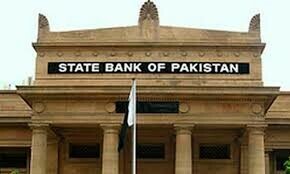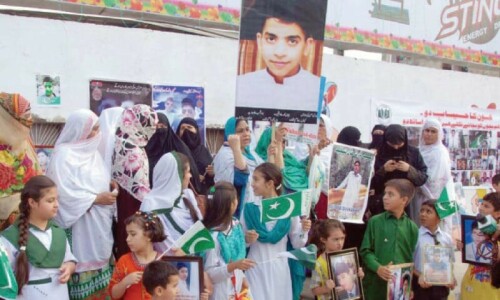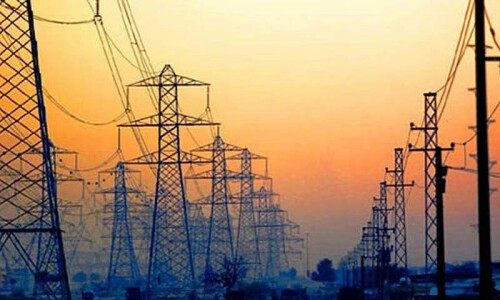LONDON: Recent emergencies affecting peacekeeping missions in eastern Congo and Sudan have deepened concerns that the UN could face another Srebrenica or Rwanda-style disaster without increases in funding, troop contributions, and political support.
Officials say there is agreement that UN operations, which have expanded to include 18 military deployments and numerous peace-building and political missions, are over-stretched. But no clear solution has emerged.
Addressing a special security council session convened last month by Britain and France, Alain Le Roy, head of UN peacekeeping operations, said the Congo mission had tottered on the “brink of catastrophe” after it was forced to take sides in recent fighting. Its numbers have since been increased but many reinforcements have not arrived.
Le Roy also warned that the under-strength UN-African Union hybrid operation in Darfur “continues to face difficulties in deploying while the parties on the ground are increasingly belligerent”.
Working amid conflicts of this kind raised a basic question about the purpose of peacekeeping when there was in effect no peace to keep, he said.
“I believe 2009 is a pivotal year for peacekeeping,” he said. “A number of our missions face risks that are so significant that there is a potential for mission failure, with terrible consequences ... I hope we will not need a new generation of reports full of regretful lessons such as those that followed the tragedies in Rwanda and Srebrenica before we address the challenges we face.”
The failure to halt the 1994 Rwanda genocide, and the 1995 massacre of 8,000 Bosnian Muslims in a UN-protected area in Srebrenica, caused a UN crisis of confidence. But now peacekeeping has become the solution of choice from Kosovo, Afghanistan and Lebanon to Liberia, Sierra Leone, Burundi, and southern and western Sudan.
About 113,000 soldiers, police and civilians are deployed worldwide at an annual cost of $8bn, compared with 14,000 a decade ago. In the past month alone, the Security Council has launched a new UN-flagged mission in Chad and decided to take over the beleaguered AU operation in Somalia.
Enthusiasts say the UN’s legitimacy, political neutrality and ability to link security assistance to conflict resolution, aid and development programmes are unique. UN peacekeepers are also cheaper to deploy than national armies, according to an Oxford University survey. The US government estimated it would cost twice as much for its army to run the UN’s current stabilisation mission in Haiti. Peacekeeping spending accounted for roughly 0.5 per cent of global military spending of $1,232bn in 2006.
But Le Roy and other UN officials say operational overstretch – lack of troops, training, equipment, airlift capacity, and logistical and intelligence support – is compounded by political overstretch. This means that peacekeeping mandates no longer simply require two warring sides to be kept apart. UN missions are increasingly expected to facilitate peace processes, reform judicial systems, train security forces, disarm and reintegrate former fighters, and support refugees.
Some countries exhibit increased hostility to UN missions. At the same time, poorly disciplined troops can make themselves unpopular. Blue berets have been accused of serious abuses in Haiti, Cambodia and several African countries.
Another big problem is Security Council members substituting peacekeeping for genuine political efforts to resolve disputes. Peacekeepers have been on Cyprus’s Green Line since 1964, with military observers on the India-Pakistan ceasefire line in Kashmir since 1949.
Practical ways to meet demand, now under discussion, include bigger contributions of personnel and cash from tight-fisted countries such as Russia, closer co-ordination with regional organisations, increased reserve capacity, better training, and wider acceptance that sometimes a new peacekeeping operation is not the answer – or that an existing one is not working.
John Sawers, Britain’s UN ambassador, said effective oversight, improved resources, clearer mandates and performance benchmarks were all important. The Security Council should be more strategic in deciding when and where to launch missions, he said. “Let’s put our own house in order first.”—Dawn/The Guardian News Service














































Dear visitor, the comments section is undergoing an overhaul and will return soon.